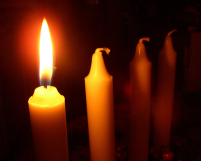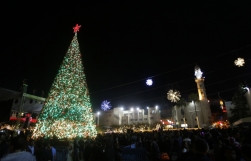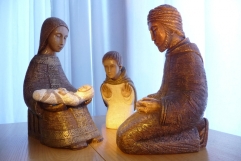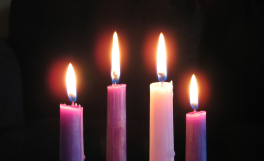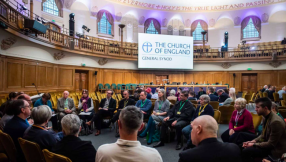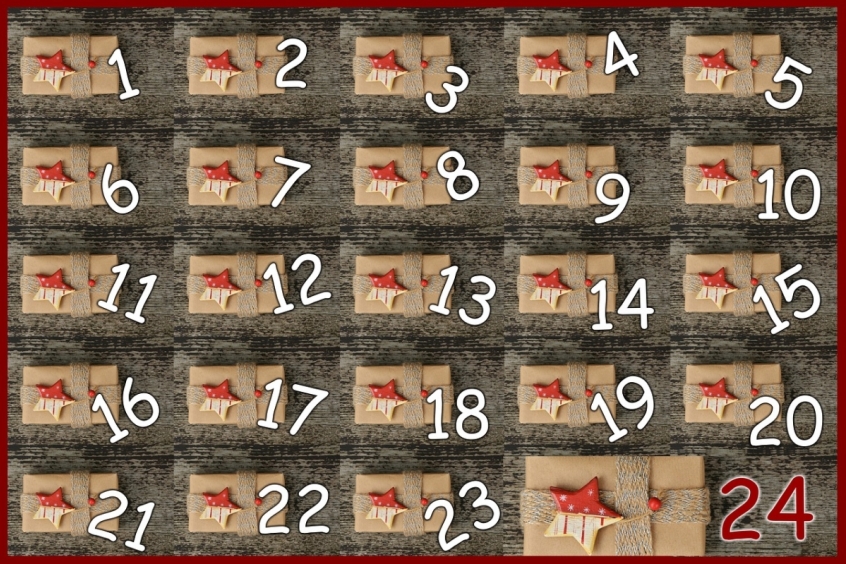
The more time I spend with children, the more respect I have for parents. Anyone who's had their own kids or adopted will need no telling, but the sheer range of demands that children put on adults is astonishing. In addition to constantly demanding care and attention, children can be very costly in monetary and career terms.
As I watch my friends' children begin to grow up, I'm also aware of the awesome responsibility of parenthood. The pressure to keep them healthy, happy, well educated and broadly on the right path is immense. My admiration for parents gets even higher at this time of year.
Bombarded by advertisers at the time when money is tightest, at the time of year where it's hardest to go out and let them run around outside, it is amazing to witness families getting through the festive season in one piece.
In spite of all this, I can't think of a better model to approach the season of Advent and Christmas than those children I know.
In the western Christian liturgical calendar, Advent is the four weeks leading up to Christmas season itself. Then the Christmas season lasts until Twelfth Night (when Epiphany is celebrated on Jan 6<sup>th). I point this out not to be a pedant, but to demonstrate exactly how children teach us to celebrate.
Adults have mostly allowed the time of waiting and anticipating during Advent to slip away and a sort of mushy, secular, festive season to extend from mid-November 'til New Year's Day. Children don't seem to get drawn into this as easily, though. Give them an Advent calendar and they understand the significance of the festival itself.
They have something to count down to and they're going to count down, rather than start the celebrations early! Now, of course what they may be looking forward to most is the presents they're going to receive on Christmas morning. This shouldn't take away from the fact that children teach us how to wait. They count down until the day itself and only then will their full joy be unleashed.
This is how Christians should approach Christmas. The festive season isn't just about some general sense of remembering baby Jesus. It's far more exciting, profound and even subversively radical than that.
What we mark at Christmas is the astonishing Christian claim that God so loved the world that He became human. This doctrine of Incarnation, unique among the Abrahamic faiths and astonishing to the pagan culture into which Jesus was born, is the heart of our faith.
Advent, then, isn't just another word for the first bit of the Christmas season, where we have the office Christmas party and make sure we've done all our shopping. No, no, no. The Christian Advent is a season where we watch and wait and anticipate not only our commemoration of Christmas itself, but that future time when God will complete the job of redemption begun in Bethlehem almost 2,000 years ago under a guiding star.
If we see Advent as the true season of anticipation and expectation, then it becomes clear why the sort of enthusiastic impatience of a child is the appropriate response to the good news which is birthed at Christmas.
In Matthew 18, we read that Jesus, "called a little child to him, and placed the child among them. And he said: 'Truly I tell you, unless you change and become like little children, you will never enter the kingdom of heaven. Therefore, whoever takes the lowly position of this child is the greatest in the kingdom of heaven.'"
This passage could be wrongly interpreted as meaning that we only need a basic grasp of the world and how faith works. That's not the conclusion to draw though. What Jesus is affirming here is the simple wonder of children. We can (and should) become educated in our faith. Theology isn't bad – in fact, it's necessary. The lesson is that learning and sophistication mustn't crowd out the simple wonder and joy we see in its purest form in children.
I remember Advent as a child. As the days went by, they seemed to get slower as the anticipation grew. The haze of Carol concerts and parties couldn't deflect all the attention from the fact that the real celebration was with family, food and presents on the 25<sup>th. In the same way, there are many nice things about the run-up to Christmas. But let's not take our eyes off the main point of Advent – the anticipation of the biggest surprise in history – that God became human.
Follow Andy Walton on Twitter @waltonandy










